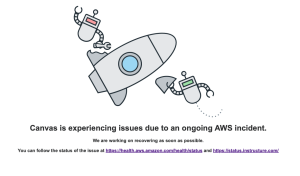How to live with privilege
September 24, 2016
I wasn’t sure how to go about writing this editorial. As a matter of fact, I wasn’t entirely confident how we might assemble this “Examiner” issue.
My concern was that we might seem like we’re attempting to impose a lesson on our readers, when, as members of the North Shore, we really do not have that authority.
If North Shore living truly does foster sheltered, entitled minds, then by no means do I claim to be any exception. Claiming to be above or excluded from a privileged lifestyle is nearly as negligent as not being aware of it at all.
Macklemore made waves earlier this January with the release of his song “White Privilege II”.
The song recounts the white rapper’s insecurity among a crowd of Black Lives Matter protesters, as well as his discomfort in his genre. The track was applauded by more than a few listeners for its supposed honesty and vulnerability. But many were none too pleased (myself included).
I don’t mean to invalidate Macklemore’s feelings. I just find it ironic that a rap song which takes liability for Macklemore’s advantages as a white rapper and his profiting from the appropriation of rap music, is doing just that.
When an individual has the platform to speak of their privilege, and they use it to seem more sympathetic, it is a perpetuation of the very privilege the speaker appears to be attempting to dismantle.
Another damaging effect of “woke culture” is the illusion that publicly displaying “woke-ness” creates a shield from “problematic” behavior. This attitude is increasingly prevalent on social media.
To proclaim yourself a feminist, and end there, is not enough. At most, it’s press. At worst, it’s misrepresentation.
Feminism cannot be retweeting, and then berating random girls for their appearance on Instagram. #JusticeForMikeBrown does not give you permission to use the n-word in a Facebook comment, nor does liking To Pimp A Butterfly (though it be a powerful, transformative album).
That isn’t to say you can’t post a hashtag now and then–your actions merely have to mirror what you post.
With these observations in mind, I have reached the following conclusions:
1. It is urgent that we stop making privilege a dirty word. This applies to both sides of the spectrum. When you are told that you receive a certain privilege, understand that you are not being demonized. This label is used to qualify an argument, not just to attack on the discourse to a victory.
Likewise, privilege (and being exempt from it) should not be a competition. It is a responsibility to be aware of the person you are and how you conduct yourself.
2. One of my hopes in constructing this issue was that we might be able to gather enough voices that have seen the “bubble” from the outside. And I hope these efforts were somewhat fruitful. The most productive way to learn about ourselves and the world we live in, is just to listen to one another.
Maybe it isn’t possible to “Pop!” the bubble. To really take a good look at ourselves, we need to pause, open our ears, take a deep breath, and hold onto it.












































